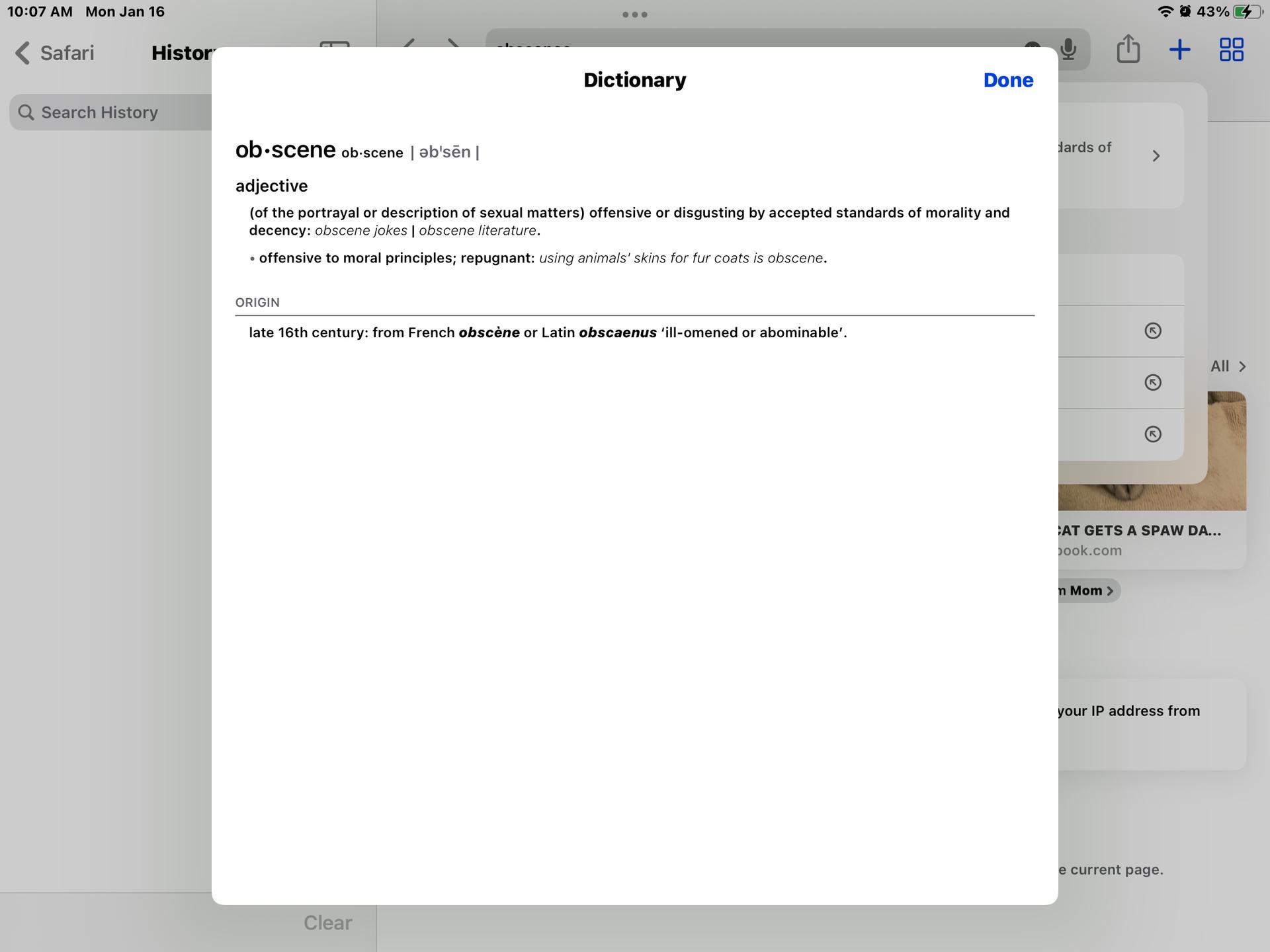
Century jokes
Calling Alabama's football team an astonishment would be the biggest understatement of the century, especially since they continuously catch balls from someone who isn't related to them.
How did Protestants perform in the 16th century? Well done.
In History class, the teacher taught a lesson about serial killer Albert Fish. Back in the early 20th century, Fish reportedly kidnapped, ate, and raped over 100 kids. He mainly chose victims who were either retarded or black. Further on the lesson, the teacher explained how in those days, black people were socially not equal with white people, and how people with mental illness were not accepted and treated properly due to a lack of knowledge of mental health.
One of the students raised their hand and said, “You ought to be arrested.” The teacher confusedly asked, “Why?” The student explained, “Because you’re thinking like Albert Fish.”
For centuries the Catholic Church censored everything that wouldn‘t fit with their teachings. You know what I call that?
"Chancel culture!"
Memes
Slavery has existed in the western world for 3 centuries, but in the Arab regions it has existed before and is still going on, so why don’t people talk about it?
Because it’s only bad when white people do it.
Beans for centuries have been called "false friends," because they have a tendency to talk behind one's back. If you get my drift. 🤣
The Titanic movie cost $200 million dollars to make, meanwhile the Titanic ship cost $400 million to construct.
Titanic was made by Paramount and 20th Century Fox. CHEAPSKATES!
What was the most useful tool in the 17th century?
Slaves.
Your hairline goes back to the first century.
Joe Rogan to Christopher Doemges: "What can you tell me about musicians of the 18th century?" Doemges: "They're all dead already!"
Why does Apple logo depict 1 byte in the 21st century?
Once upon a time, there were three kingdoms, all bordering on the same lake. For centuries, these kingdoms had fought over an island in the middle of that lake. One day, they decided to have it out, once and for all.
The first kingdom was quite rich and sent an army of 25 knights, each with three squires. The night before the battle, the knights jousted and cavorted as their squires polished armor, cooked food, and sharpened weapons. The second kingdom was not so wealthy and sent only 10 knights, each with two squires. The night before the battle, the knights cavorted and sharpened their weapons as the squires polished armor and prepared dinner. The third kingdom was very poor and only sent one elderly knight with his sole squire. The night before the battle, the knight sharpened his weapon, while the squire, using a looped rope, slung a pot high over the fire to cook while he prepared the knight’s armor.
The next day, the battle began. All the knights of the first two kingdoms had cavorted a bit too much (one should never cavort while sharpening weapons and jousting) and could not fight. The squire of the third kingdom could not rouse the elderly knight in time for combat. So, in the absence of the knights, the squires fought.
The battle raged well into the late hours, but when the dust finally settled, a solitary figure limped from the carnage. The lone squire from the third kingdom dragged himself away, beaten, bloodied, but victorious.
And it just goes to prove, the squire of the high pot and noose is equal to the sum of the squires of the other two sides.
In the beginning of the 20th century, a young girl called Edit left her home country of Sweden and crossed the Ocean to make a new life in America. Unfortunately, it did not go all that well, and she soon found herself homeless, begging for food or money to survive.
She used to occupy a street next to a theater, not because it meant hefty handouts, but because it was a place where no other beggars or police bothered her. Every night, a new crowd came to see a show, and the cute young girl found just enough mercy to survive. In fact, she did so well that she decided to afford herself a small piece of cake every Tuesday, just to keep her spirits up.
One Tuesday, she could not get a break. Looked like she will go without cake this week. Then, a strange-looking gentleman stopped near her. He soon heard her story and decided to share his fortune.
Gentleman: "I work as a magician in the touring show; today, we performed here. Some nights, our guests want to gamble with us afterwards, and I make sure to bring home more than I came with. I try to keep it moderate, but today, this obnoxious drunk was loaded, so I emptied his pockets. Here, take this precious coin."
For centuries, Japan’s feudal dictators, called Shoguns, enforced strict laws that kept people from leaving or entering the country. This practice isolated Japan from the rest of the world. By the middle of the 19th century, Japan’s isolationism was creating problems for the United States’ whaling industry whose ships needed coal, food, and water available in Japanese ports. And sailors who were shipwrecked on the coast of Japan needed protection from mistreatment.
In November 1852, President Millard Fillmore sent an expedition to Japan to solve these problems. Led by Commodore Matthew C. Perry, the expedition had both steam-powered and sail-powered warships and several hundred men. Perry’s task was to persuade the Japanese to sign a treaty with the United States that would open Japanese ports and protect shipwrecked sailors. On July 8, 1853, the Perry expedition sailed into Edo Bay about thirty miles from the city of Edo (modern Tokyo).
During talks with the Shogun’s representatives, the idea of a treaty was repeatedly rejected. But Perry didn’t give up. Finally, in February 1854, the Japanese agreed to negotiate a treaty. The Treaty of Kanagawa established peace between the two countries, opened two ports to U.S. shipping, and protected shipwrecked sailors. It was signed on March 31, 1854.
Perry’s expedition also opened Japan to the rest of the world. Within two years, Japan signed similar treaties with Russia, Holland, and Britain.
Memes
Found a good definition of the jokes here while listening to Without Me by Eminem
I love this comic run so much
Community
It must've been very exciting when it was 2000. A new year, century and generation!
IT’S THE FIGHT OF THE CENTURY! JAKE THE CHILD PREDATOR! VS! ETHAN THE ALIEN! THE REAL FIGHT THIS TIME! With me hosting again. NO REFUNDS!
ATTENTION WJE! COME ONE, COME ALL FOR THE FIGHT OF THE CENTURY! JAKE THE CHILD PREDATOR! VS! ETHAN THE ALIEN! IT’S THE LOW BUDGET ALIEN VS PREDATOR! LETS DO IT! Oh, and I’m the host/referee




